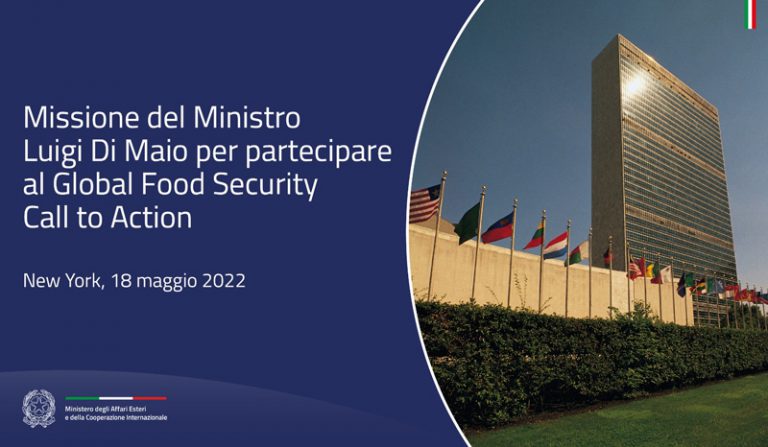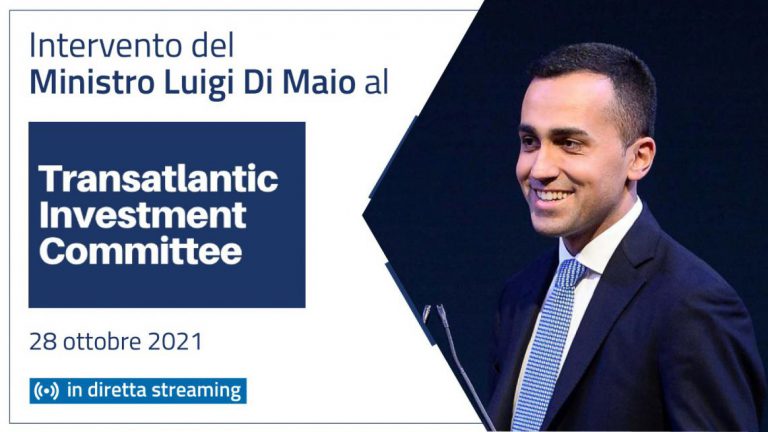(The authentic text is only the one actually delivered)
President Kempe,
Members of the Atlantic Council,
Ladies and Gentlemen,
I am honoured to be here at the Atlantic Council. The Atlantic Council is the “home” of free-thinking and dialogue.
It promotes the key values that underpin the great relationship between America and Europe. And our common values are vital to ensure our security and defend our freedoms.
I want to focus our discussion on the common security challenges that stem from the Mediterranean.
If you look at the Mediterranean on a map, you will notice that it’s just a little bit larger than the Great Lakes. However, politically and not just in “maritime terms”, it’s not as calm as a lake. A great portion of global security is at stake in that big lake.
Just think about the main crises across the Mediterranean: the collapse of Libya and its borders, the huge flows of migrants from Africa, the conflict in Syria, and the spread of Daesh, in a massive area that spans from Tunisia to Iraq.
We are facing an unprecedented situation of structural instability in the region.
In the past, our common security threats were coming mainly from the East.
But today, most of them come from the Southern Shores of the Mediterranean Sea.
I stressed this point with NATO Secretary General Stoltenberg. I told him quite frankly that the Mediterranean is the place that ties the European Union to NATO and then to the US. A common effort in the Mediterranean is the keystone to our security. It should be a priority in NATO’s new Strategy.
In all my discussions with Secretary of State Tillerson and other good friends in the US Administration, I sense a very deep understanding of what is really at stake in the Mediterranean. And the US knows very well that it can count on Italy’s expertise and knowledge of the region.
As you know, I’m in Washington to participate in the meetings of the Global Coalition Against Daesh. Under the US leadership, the Coalition has proved an extraordinary tool in the battle against Daesh.
We are facing a new threat: Non-State actors with State-like capabilities and aspirations. And this makes the threat much more serious.
So let me stress what Italy is doing to counter this threat and to stabilise those countries that are its first victims.
Italy is a protagonist in Libya and in Iraq.
Italy has deeply invested in Iraq as the second partner of the Global Coalition. We have 1400 troops stationed there. We are in Iraq to help and to stay.
The Iraqi units trained by our Military were among those that played an essential role in the battle for Falluja. Today, the same units are also involved in the operation to free Mosul. I am sure that Mosul will be liberated very soon.
The Iraqi cities are freed from Daesh by the army. But it’s the job of the police to maintain public order. Italian Carabinieri are training this police. Overall, we have trained so far eighteen-thousand security forces (18,000).
The main challenge for Iraq and the Coalition is to make the military victories sustainable. Since there is no peace without stabilisation and there is no stabilisation without a reliable police.
Libya is another country that has always been a strategic priority for Italy, as it should be for the whole Europe.
Therefore, we were the first to return to Tripoli and open our Embassy. Being on the ground allows us to better support the Libyan efforts in eradicating terrorism.
In particular, we have been providing medical assistance to the Eastern and Western Libyan young men who have fought terrorism in their home country.
We cannot afford to lower our guard now that we are making some progress. Because the situation is still fragile.
Reconciliation between East and West is fundamental to defuse the threat of return of Daesh and foreign fighters. The fight against terror should unite the divided Libyan people.
At the same time, we are working actively to cut-off the stream of finances that sustain terrorism. It’s like cutting their oxygen. A good example of success at a global scale has been the Counter Daesh Finance Group chaired by Italy, together with the US and Saudi Arabia.
However, if we want to succeed in our fight against terror, we need more vigorous diplomatic action to promote credible and inclusive political solutions. Because it’s essential not to marginalise large sectors of the society: in Libya, as in Iraq, and in Syria.
Generals used to say that a war is won when soldiers are in control of the presidential palace. That was the case in the past.
Today, a war is won only when the doors of the “palaces of power” are open for the inclusion of the key political players. No victory against terror can be achieved in the long-term if large communities are isolated or discriminated against.
Therefore, with regards to Syria, Italy firmly supports the efforts of UN Envoy de Mistura for inclusive talks in Geneva. This must be part of our comprehensive strategy in fighting Daesh and Al-Qaeda.
Italy also supports the initiative launched by EU to host an international conference in Brussels on the future of Syria and the region. (5th of April).
However, we cannot pay for the reconstruction while Assad is still killing his people.
Let me also remind that Italy is a security provider to the region in other ways: for instance, we are the first contributor of troops to UNIFIL at the border between Lebanon and Israel. We consider peacekeeping as a “qualitative element” of security strategy. In fact, Italy is the first Western contributor of Blue Helmets to the UN. And we are extremely engaged in their training.
And as you know, Italy is also one of the largest contributors to NATO operations and missions in areas that are of immediate threat to the security of the Mediterranean, such as Kosovo and Afghanistan.
It’s also fundamental not to lose sight of the bigger picture. While we work to get rid of Daesh in Libya, Syria and Iraq, we must be very mindful of the risk of further sectarian drift.
The aggressiveness of Shia militias, for example, is a recipe for more violence in the region. And the last thing we want to see are more tensions in Lebanon or new attacks against Israel.
At the same time, we have work to do at home, in our national responses to terrorism. We bear a huge responsibility to reassure our citizens. And not by spreading more fear, as some populists are doing in Europe.
What are needed are concrete actions, not slogans. Something that I did with great resolve as Minister of Interior, by identifying and neutralising violent extremists. And also by encouraging smarter cooperation mechanisms to share more intelligence.
Italy wants to step up its information sharing with the US.
Europe and the United States are facing common challenges in the Mediterranean. For this reason, I am convinced that our Transatlantic bond remains as crucial as ever.
As Europeans, it’s understood that we need to step up our security efforts. Our defence sector requires more resources and a higher level of integration.
On the other hand, Europe has to increase its level of ambition and look with greater attention to the South, where we face the biggest terror threats today.
On the 25th of March, European leaders will gather in Rome to celebrate sixty years since the signing of the Treaties that gave birth to the European Union.
It’s not just a celebration, but also an occasion to foster the idea of a Common European Defence as a means of further integration.
A Common European Defence has become an urgency and it goes hand in hand with NATO’s southern strategy. It’s in the interest of Europe. It’s in the interest of NATO. And it’s in the interest of our partners in the Mediterranean. All of us can benefit.
My dear friends, our Transatlantic ties can only continue to grow. Because they are built on extremely solid foundations of shared freedoms and values that define our identity and our deepest beliefs.
The enemy is strong. But then I think of the strength of our common freedoms and fundamental values. And how over time these have proven to be stronger than any horrifying terrorist plot.
Thank you for the opportunity to speak to you.



